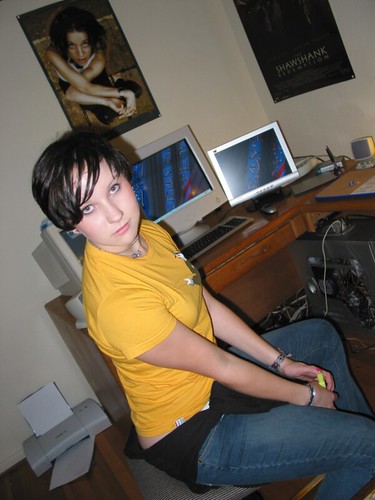Sterling Bay sues to evict BioLabs from Lincoln Park building
Sterling #Sterling

A plan devised by Sterling Bay and a Massachusetts-based firm to offer shared lab and office space in Lincoln Park to life sciences startups is falling apart.
An affiliate of Chicago-based Sterling Bay, which owns the property at 2430 North Halsted Street, has sued to evict BioLabs and asked a Cook County judge to award more than $2.7 million in damages over a dispute regarding the tenant’s lease.
“We’re certainly disappointed on our end,” BioLabs COO Peter Shanley told The Real Deal. “We signed a lease under the assumption that there would be a larger partnership together, and Sterling Bay was not able to follow through on that.”
Further details on the partnership beyond the lease were not disclosed, but he added that it “did not materialize due to no fault of BioLabs Chicago, which is an issue we’ll address in this lawsuit.”
Sterling Bay said through a spokeswoman that it met all its requirements of the lease, “including providing an extensive and expensive build out” of BioLabs’ planned space.
“It is unfortunate that BioLabs could not honor its obligations under the lease, never moving in or paying a days’ worth of rent, leaving landlord no choice but to file for eviction and resolve the matter in court,” Sterling Bay said.
Cambridge, Massachusetts-based BioLabs operates similarly to coworking providers, by renting large blocks of real estate that it can turn into lab space. It then subleases the space to early-stage companies in need of research equipment and workspace that they can occupy on flexible terms, such as shorter leases than standard 10-year office deals.
In 2021, BioLabs — whose website shows it has 14 other locations in the U.S. and Europe — agreed to lease about 30,000 square feet at the Halsted Street property. At the time, the deal was viewed as having added momentum to Chicago’s burgeoning life sciences scene.
But in May of last year, Sterling Bay notified BioLabs it had defaulted on its lease by failing to put up a $250,000 portion of its security deposit. BioLabs was set to pay nearly $1.5 million in the first year of its lease, with the rate increasing to more than $1.9 million in the 10th and final year of the deal, exhibits to the lawsuit show.
The eviction complaint darkens an already gloomy picture for shared workspace providers in the office and research sectors of the commercial real estate market. WeWork is winding its way through bankruptcy court as it seeks to cut costs by reorganizing leases across the country. Locally, a Fulton Market tenant called Salt Flats Innovation House, which sublets offices and production space equipped with 3D printers and other specialized tools, was hit last month with an eviction complaint from its landlord Vista Properties.
Other business models similar to BioLabs have popped up in Fulton Market. Trammell Crow landed leases with Portal Innovations and the Chan Zuckerberg Biohub, a venture led by Facebook founder Mark Zuckerburg and his wife, Priscilla Chan.
Because Sterling Bay had agreed to abate some of BioLabs’ rent at the beginning of its lease, the tenant’s alleged default arising from the security deposit means the landlord is owed the rent that would have been abated, plus other fees, which totals more than $2.7 million that the lawsuit seeks to recover, according to the court filings.
BioLabs is still searching for another opportunity to open a space in Chicago.
Read more
“We want to be in Chicago and in the Midwest,” Shanley said. “There are a lot of great opportunities there. It’s going to be a strong, thriving biotech ecosystem.”
Sterling Bay bought the five-story, 125,000-square-foot Halsted Street building for a little under $23 million in 2018 from Lurie Children’s Hospital, which had used the property as its research center. The developer repositioned it to attract life sciences companies spun out of Chicago-area academic institutions, with hopes of signing them to bigger spaces as they grew, such as the lab space in Sterling Bay’s Lincoln Yards megadevelopment nearby.
Sterling Bay pulled in a $65 million loan from Capital One using the Halsted Street property as collateral in 2022, records show. The building was 80 percent leased after it landed deals with four other biotech companies, the Sun-Times reported in November. But it’s unclear whether that occupancy rate included the BioLabs lease.
While a 285,000-square-foot lab building has been completed to kick off Sterling Bay’s Lincoln Yards push, it remains empty as the city’s burgeoning life sciences scene gets more competitive.
An initial court date in Sterling Bay’s eviction case against BioLabs is set for Feb. 15.